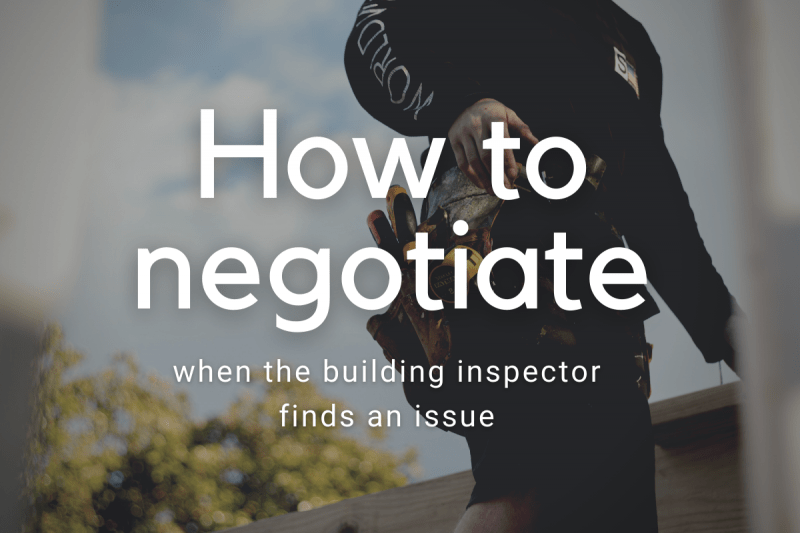The building inspection is a make or break moment in any property deal.
When your inspector visits the home, their feedback will either give you the confidence to move forward, or it might put you off buying entirely. At the very least, their findings could drastically reduce the price you are willing to pay.
A builder will often find issues neither the buyer nor the owner even knew about before the inspection. Problems often come as a surprise to both parties.
If your builder discovers a problem that requires urgent attention, what do you do? Should you try and negotiate the price? Or pull out entirely?
Note: First, check with your legal adviser if you have the right to try and renegotiate the price. This will depend on the status of your contract and it’s terms/conditions.
At this point, it’s important to take a step back and seek perspective before you decide on a plan of action.
Ask yourself:
Question: Is this problem a deal-breaker?
Bearing in mind what your builder is telling you, are you still interested in owning this property? Or, to put it another way, is there a price at which you still want to own this home?
If you feel like you want to pull out completely, it might be worth double-checking your feelings with another builder, or other homeowners first. Ask if they have come across similar issues in the past. Were they hard to fix? What sort of budget might you need to overcome this? Is this type of issue common for a house of this age?
When you hire an inspector you need to keep in mind that they are unlikely to tell you anything nice about your new home. They are generally only there to find negatives.
All houses have issues and there is no such thing as a perfect property.
If the problem isn’t a deal-breaker, then it’s time to talk price.
Question: Are you happy to buy the home anyway?
If the issues raised are small, then it may be best to just carry on and proceed with buying the home as-is. Ask for price estimates for each suggested repair and ask how urgently they need to be done. If the answers aren’t too scary then that’s great news. Isn’t it cool that there appears to be nothing majorly wrong with your new home?
Expensive repairs you didn’t see coming…
If your builder comes back telling you the home urgently needs a new roof, the foundations are deteriorating and the wiring is a fire hazard, and you didn’t know about those things before you offered, then it’s understandable that you might want to seek a price reduction.
Before you decide on a figure, keep in mind that the owner doesn’t have to agree to your request. If it’s a hot market, and your offer was one of many, they may decide to decline any price reduction on the basis that another buyer might not care as much as you about these issues.
In that case, you will quickly need to decide if you are prepared to buy the home anyway.
How much of a reduction should you ask for?
This is a personal choice but one common mistake is to ask for the entire cost of repair to be deducted off the price.
If the owner spent the money to upgrade all the areas that need attention to a brand new standard, would their property be worth more than what you are wanting to pay?
If the answer is yes, then it isn’t necessarily fair to ask for a full reduction covering all the repair costs. You can look to split the difference in some way that you feel comfortable and still end up with a logical result.
Don’t let pride get in the way of progress. If you ask for too much, you could end up missing out on a home that suits your needs perfectly, over a relatively small amount of money.
The less you ask for, the more likely the owner will accept.
There is always a balance in building inspection negotiations. If you ask for too much of a reduction, the owner might give up and move on to the next offer, or go back on the market.
Should you ask the owner to fix the issues?
Another common mistake is for buyers to ask the owner to undertake repairs, rather than seek a price reduction. The owner may not want to project manage tradespeople when they have already mentally moved on to the next stage of their life.
Check with your salesperson to confirm which approach the owner would prefer (reduction or repair at their cost) but in most cases, you may be better to seek a monetary solution.









